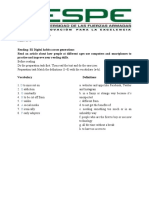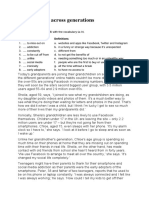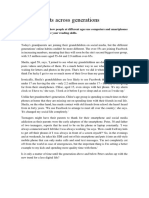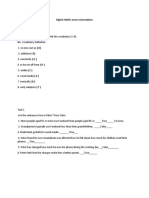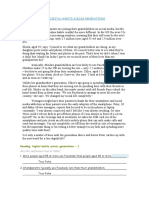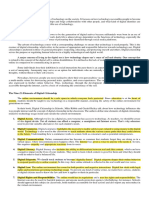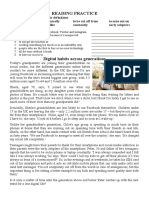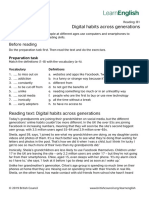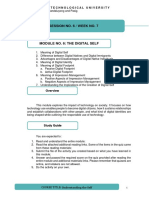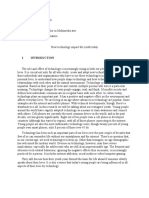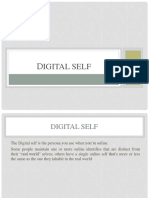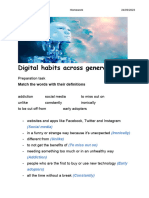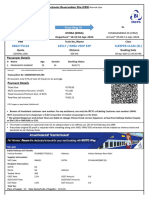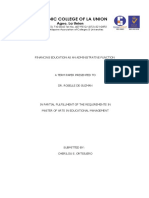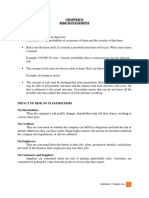0% found this document useful (0 votes)
24 views13 pagesTechnology 2°administración
The document discusses the concept of digital citizenship, highlighting the importance of digital literacy, netiquette, and privacy in online interactions. It also examines generational differences in social media usage and the reasons behind oversharing information online. Additionally, it provides insights on how to protect oneself while using the internet and the implications of technology on social habits.
Uploaded by
iaccmanyaCopyright
© © All Rights Reserved
We take content rights seriously. If you suspect this is your content, claim it here.
Available Formats
Download as PDF, TXT or read online on Scribd
0% found this document useful (0 votes)
24 views13 pagesTechnology 2°administración
The document discusses the concept of digital citizenship, highlighting the importance of digital literacy, netiquette, and privacy in online interactions. It also examines generational differences in social media usage and the reasons behind oversharing information online. Additionally, it provides insights on how to protect oneself while using the internet and the implications of technology on social habits.
Uploaded by
iaccmanyaCopyright
© © All Rights Reserved
We take content rights seriously. If you suspect this is your content, claim it here.
Available Formats
Download as PDF, TXT or read online on Scribd
/ 13

